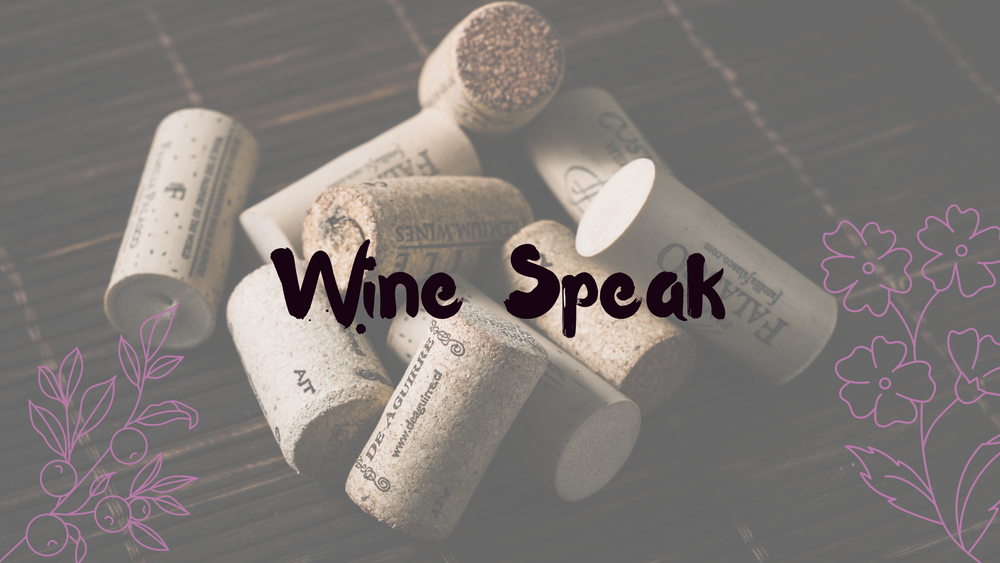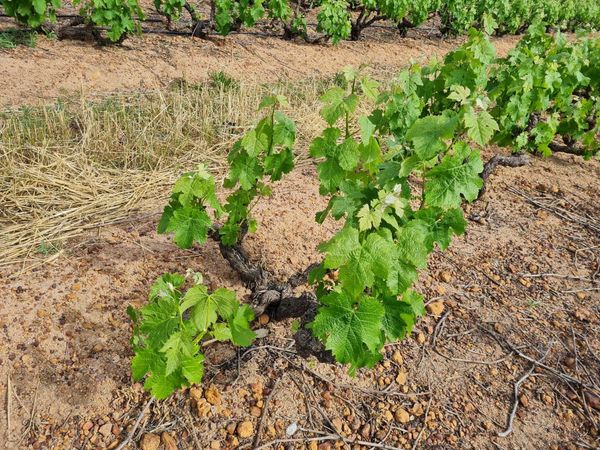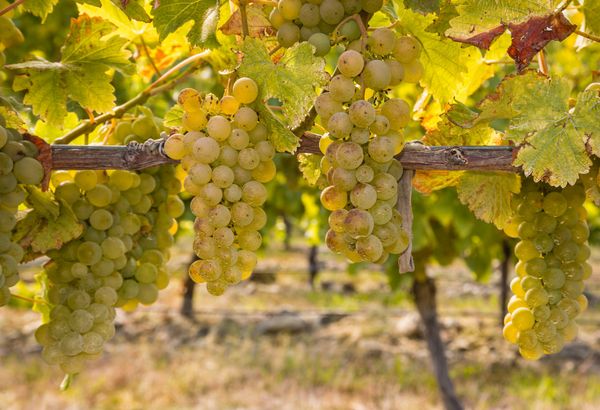Wine Terms
Okay, so you've been drinking wine for a while now, you know how to taste wine (you can read this article for some pointers) and you would like to start talking to people about wine.
How do we talk about wine? What do we say? And how many French words do we need to know to effectively communicate what we think about a wine?
The short answer? As long as you can describe what you see, smell and taste, you can talk wine.
I've selected a couple of terms that I think are important to know when talking and learning about wine. This list is by no means exhaustive, but will definitely help you to describe your new passion.
Acidity
Acids are present in all wines and contribute to the taste and longevity of a wine. White wines often seem more acidic than red wines, but this is not always the case. A wine's acidity can be described as low, medium or high. Wines with higher acidity are often described as lively, crisp, bright, fresh or tart. Not sure how to identify it yet? Think about the taste of Sauvignon Blanc; the more your mouth waters after taking a sip of wine, the higher the acidity of the wine.
Aroma or Bouquet
The term aroma refers to the smell of a wine. Aroma is usually used to describe the smell of a young wine, whereas bouquet usually describes the smell of an older wine.
Balance
When you take a sip of wine and everything comes together perfectly with no tastes or smells that are standing out, the wine can be described as balanced. A balanced wine is a harmonious blend of acids, tannin, flavours, alcohol and sugar.
Botrytis (Noble rot)
Botrytis is a fungal disease that causes grapes to develop concentrated flavours, sugars and acidity. Grapes that have been favourably affected by Botrytis is used to make dessert wines called Noble Late Harvest wines.
Body
The body of a wine is the overall impression of a wine in your mouth. It can be a little confusing at first, but as you taste and experience more wines, you'll find that wines can feel heavy or light in your mouth and can even have a certain texture. The body of the wine is made up of different aspects including alcohol, acids, tannins and flavours. Chardonnay (wooded/oaked) or Cabernet Sauvignon can usually be described as full-bodied wines, whereas Sauvignon Blanc or Pinot Noir wines are usually light-bodied.
Complex vs simple
These terms do not refer to the label or extravagant explanations that winemakers give to their wines, it refers to the variety of flavours and aromas present in your glass. A complex wine is one that has a number of different aromas and flavours that you can distinguish. A simple wine is one that does not show varying levels of aromas and flavours. Think of Sauvignon Blanc for instance, usually you will only be able to distinguish between citrus flavours and perhaps green bell pepper or tropical fruit, this will be a simple wine. In contrast, think of a premium oaked Chardonnay, in this case you should be able to distinguish between citrus, pastry, buttery, vanilla, butterscotch and perhaps even almond flavours.
Corked
No, this does not mean that the bottle has a cork or that there are little pieces of cork floating around in your glass. The term corked refers to a wine fault that occurs when trichloroanisole (TCA) is present in a wine. A corked wine has an undesirable smell, usually of wet cardboard or mould.
Dry, Off-dry, Sweet
The terms that describe the sweetness of a wine. The term dry is used to describe wine where there is no residual sugar left after fermentation. Off-dry wines have some residual sugars and sweet wines have perceptible sugars on the nose and in the mouth. It is important to remember that the sweetness of a wine does not refer to the fruit flavours of a wine.
Finish
The sensation of flavours that linger in your mouth after you have swallowed your wine. Generally speaking, a wine with a short finish will be of lower quality than a wine with a longer finish. You should also note whether a wine has a pleasant or unpleasant finish; a strong burning sensation will be not be considered a positive quality in a wine.
Nose
The aroma or bouquet of a wine.
Oak
If a wine has been matured in oak barrel or using oak staves or chips, it is usually referred to as an oaked or wooded wine. Oak smells and flavours imparted into wine include vanilla, coconut, baking spices, cocoa and cloves among others.
Palate
This term is used to describe the tastes and feeling of the wine in your mouth.
Sediment
Sediment is tiny particles that are formed in wine and gather at the bottom of tanks, barrels or bottles. This is usually removed from the winemaking vessel (barrel or tank) by racking, filtering and/or fining. If sediment has formed in the bottle it can be removed by carefully decanting the wine.
Tannins
Tannins are an important structural component in red wines. Tannins are phenolic compounds mostly extracted from the skins of grapes. When tannins bind with saliva it makes your mouth feel dry and rough, it also causes a bitter sensation although tannins have no actual taste or smell.
Terroir
The one (only) French word worth knowing for now. Terroir is an extremely complex term that refers to all of the environmental factors affecting a vineyard. It encompasses the various growing conditions in a vineyard, including the climate, soil composition, exposure (direction it’s facing), topography (angle and position on a slope or plain), proximity to a body of water, and also altitude. The terroir usually has a big impact on the vine and its expression of character on the vines and in the grapes.
Vintage
Vintage refers to the harvesting process of each year. The year in which the grapes for your wine were picked is the year or vintage of the specific wine. This usually appears on the bottle. (Side note: if you can still find any buy 2015 vintage wines, otherwise start collecting 2017 vintage wines.)
That is is for now, if there are any other terms that you would like me to add leave a comment below. Thank you for reading and learning. If you would like to receive these articles in your inbox, click on the subscribe button and send me your email address. 📬
Follow The Wine Dream on Instagram for more photos and tasting notes. 🍷
Recommended by CapeTownInsider.




